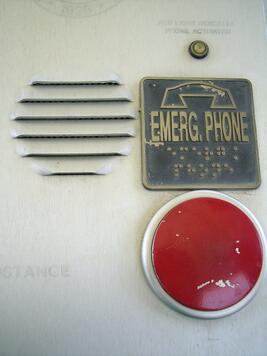4 Quick Facts About E911
When you consider the phone system in the United States, one sometimes overlooked but very important aspect is 911, the national emergency number. Even if you’ve never called it, the number surely has a place in your mind, just in case.
When you’re using VoIP, 911 is still accessible, but the inner workings are a bit different. Today we’re going to cover a few quick points about enhanced 911 or E911 as it’s called, to help you understand and make sure your system is prepared to use it! If you’re looking for other sources on enhanced 911, check out this article that one of our Technical Services Reps, Cameron, wrote on 911 Over VoIP.
The History
When VoIP became more widespread as a less expensive option for phone service, some issues surfaced. Since VoIP is much more versatile than a landline phone, tracking the location of 911 callers can be a lot tougher, especially on a wireless network. Initially, providers explicitly stated that their packages did not include 911 access to get around regulations, and the FCC decided not to intervene to let the market mature. Once cases of users not being able to reach 911 became well-known (many subscribers had not been told that they had to specifically sign up for the service), the FCC stepped in and the modern rules — including that all VoIP providers give access to enhanced 911 — were established.
911 Can Still Call You Back

Perhaps you know someone who has accidentally called 911 and received a concerned call from a dispatcher shortly after. This was a big problem in North Carolina, where the area code 919 caused lots of slip-up 911 calls. When you call 911, they are required to call you back, and if you don’t pick up they will send the police, assuming an emergency. With this emergency 911 service, all the information registered to the caller is displayed to the 911 operator, just like a normal phone. However, it’s critical to…
Keep Your Info Up-To-Date
With traditional phone services, users can’t really change their location, so the providers impart user location data to 911. E911 has access to a caller’s location, but should a person move, it is vital that they alert their VoIP provider to the change. If they fail to do so their details will be out of date, which could delay action in the event of an emergency.
VoIP Can Fail
Unfortunately, no system can be 100% perfect all the time. Because of this, there is always the slight chance that your power could go out or your Internet connection slow to a crawl. Either of these scenarios would effectively render you unable to connect to E911 should you have an emergency. Because of this, it’s wise to have backups. Some options include keeping a backup power supply for outages, having a regular phone around, or carrying a cell phone for crisis purposes. Hopefully you never experience an outage or need to call 911, but taking the time to secure a backup option (or several) could be life-saving in the long run.
What Is Your Emergency?
911 is a service that’s vital to all Americans, and using VoIP doesn’t have to change that in any way. You can weigh what you’ve learned here to decide if E911 is a realistic option for your business.

